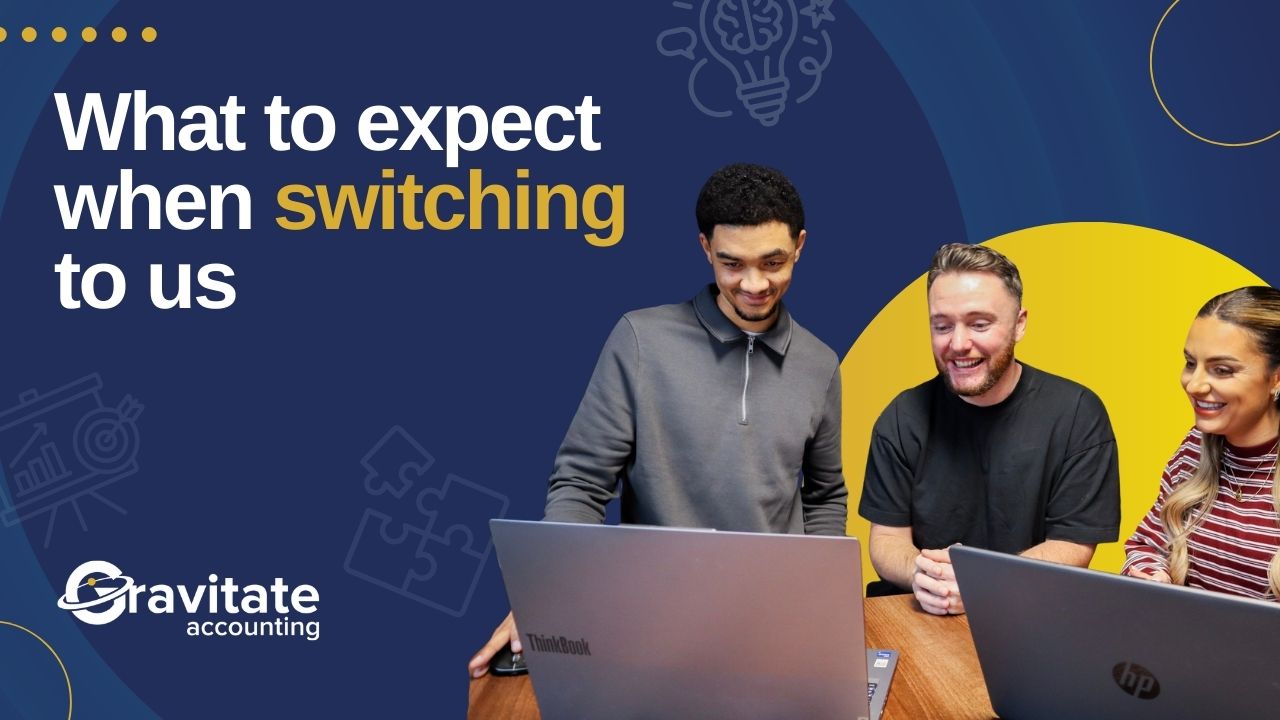Choosing the right accounting software is a major business decision that may feel overwhelming. With so many options and add-ons available, it can be difficult to know which platform will best suit your business overall.
The right software is a powerful tool for managing your finances, ensuring compliance, and making informed business decisions.
The Gravitate team regularly works with many of the most popular accounting software platforms; in this blog, we have broken down the key features of four leading examples: Xero, QuickBooks, FreeAgent, and Sage.
The reality is these are all excellent tools, and each can be used to serve your needs effectively. There are, however, some key differences that are useful to know.
Xero
Xero needs no introduction – it is arguably the most well-known digital accounting platform in the market currently. One of its standout features is its enormous range of third-party app integrations.
This flexibility means you can add almost any bespoke features that you need with external apps.
In my opinion, Xero is the most user-friendly piece of software on this list, both for business owners and accountants. It simplifies your finances into an easily understandable format, making it an excellent tool for businesses of all sizes.
As for downsides, you may need a large number of additional apps that link to Xero, which can create additional costs.
QuickBooks
QuickBooks, like Xero, offers a suite of financial and accounting management systems, including accounting, invoicing, bank transactions, taxes, payroll and inventory. A major advantage that stands out with QuickBooks is its excellent support network.
QuickBooks offers 24/7 assistance, and you can usually resolve any issues quickly, ensuring minimal disruption to your business. This can be especially useful for fast moving businesses with greater support needs.
For VAT-registered businesses, QuickBooks' "error-check your return" tool is also very helpful. It can simplify VAT return preparation by identifying potential mistakes before submission.
Like Xero, QuickBooks integrates well with lots of other business tools, such as e-commerce platforms and payment processes.
Despite these advantages, QuickBooks may not be as easy to use as Xero, particularly for inexperienced users. Some clients that we have worked with have shared similar feedback about usability.
If you are struggling with any user experience elements, our team offers issue-specific training and upskilling in use of these apps.
FreeAgent
FreeAgent is a powerful tool and, due to their partnership with NatWest and Mettle (by NatWest), you can access it for free assuming you have an account with the bank, this can provide over £400 saving per year to business owners.
The software is particularly favoured by freelancers and small businesses. It is user-friendly and provides good customer support, with a greater focus on tax, including MTD and VAT returns.
One feature that sets FreeAgent apart is the support for direct submissions of year-end accounts to Companies House, as well as tax returns to HMRC. The inbuilt payroll functionality is better than most its competitors too.
Additionally, its “Tax Timeline” feature provides live updates on your self-assessment and corporation tax calculations, along with reminders for upcoming deadlines.
The platform was previously best suited for smaller businesses and sole traders, but we are seeing it used by more larger businesses now as they roll out new features.
Sage
Sage 50 is a powerful tool that is especially well suited for larger businesses that require in-depth financial reporting and lots of integrations.
It also has one of the most advanced payroll systems available, seamlessly integrated with your accounting software. This naturally comes with a higher level of pricing than alternatives, but its value is dependent upon how its features are deployed.
Sage 50 has an extensive range of features and tools available; this can make things quite complex, so users without accounting experience are encouraged to seek assistance in its set up and management.
One of the main restrictions of Sage 50 is its primarily desktop-based functionality. This can make it harder for accountants to provide immediate support, as they cannot access the software remotely to fix issues like they can with cloud-based platforms.
In recent years Sage have made huge strides in the cloud accounting software space developing a product to compete with Xero. They have also made acquisitions of accounting apps that link with the software (such as Futrli) further enhancing the product to offer bespoke reporting and forecasting.
Making a decision
There is no definitive answer for which accounting platform is best. The Gravitate team has plenty of experience with each of these pieces of software and, when applied correctly, all of them are exceptionally useful and offer great value for money.
Choosing the right one is all about matching features to your needs.
As your Digital Accountants, one of the first things Gravitate will do is review your current accounting platform (if applicable) and recommend what we believe is the most suitable for you. This will factor in your current needs, as well as your future growth plans.
If you need any assistance with this decision, reach out to our team today and we’ll be happy to help.

.png)


.png)

.png)
.png)

.png)
.png)
.png)













.png)
.png)
.png)

.png)
.png)

.png)

.jpeg)



.webp)
.webp)










.jpg)

.webp)
.png)

.svg)
